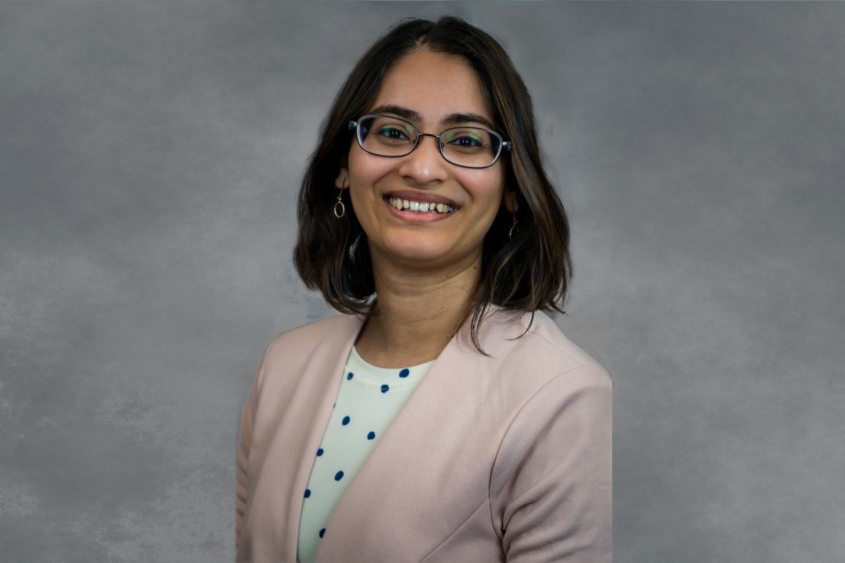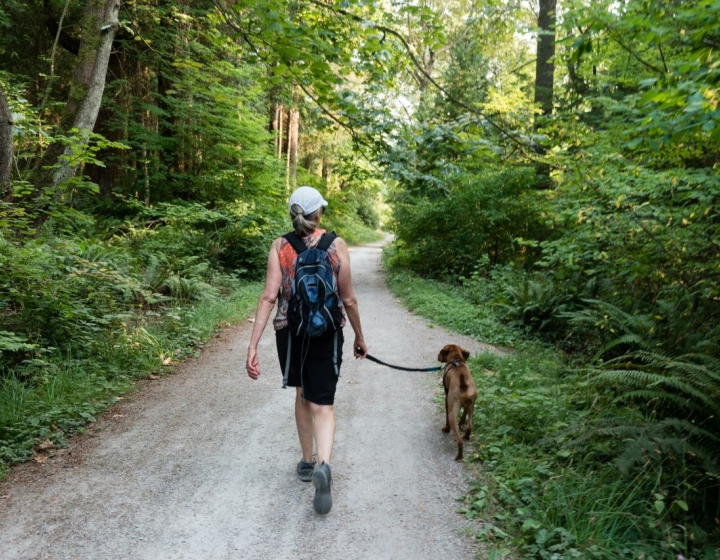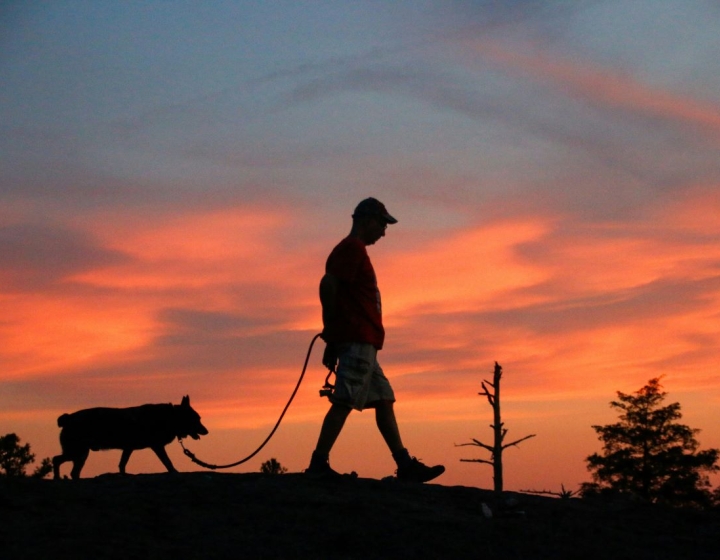New faculty profile: Dr. Arunika Das
The Cornell University College of Veterinary Medicine (CVM) has recently welcomed many new faculty members to our academic departments, each one bringing a unique set of skills and experience that enriches our college every day. In this Q&A series, you'll get to know their interests, expertise and more.
Dr. Arunika Das, assistant professor, Department of Biomedical Sciences
Q: What has been your path leading up to Cornell?
I studied chemistry as an undergraduate at the University of Calcutta, and that’s when I first became interested in unanswered questions in science. I transitioned to a master’s program in biochemistry and discovered my love for biological systems. I pursued a graduate program in cell and developmental biology at Rutgers University exploring a fundamental question in biology: how do animals inherit chromosomes through the gametes? My thesis dissertation looked at unique ways in which reproduction differed from all other biological phenomenon. I did my postdoctoral work studying challenges in chromosome and protein inheritance in the germline, especially in early embryogenesis and through maternal reproductive aging. Ultimately, I joined as an NIH Cornell FIRST assistant professor in the Department of Biomedical Sciences in February 2024.
Q: What drew you to CVM?
Cornell has a rich history in reproductive research, especially for large animal species. In my thesis work and postdoctoral training, I had trained in fly, tissue culture and mouse model systems. CVM provides a unique opportunity to study other mammalian systems such as equids, which opens up many avenues for addressing research questions not supported by my current model systems. Comparative biology also provides a holistic understanding of a basic biological problem while illuminating the myriad evolutionary paths taken to reach the same solution in different organisms. I am excited to pursue these new areas of research at Cornell.
Q: What is your academic area of expertise?
My training is in cell biology and genetics. However, in my postdoctoral training I learned epigenetics, reproduction, development and structural biology. Now, my work interfaces these fields and uses diverse and interdisciplinary methods to address challenges in reproductive aging and developmental epigenetics.
Q: What drew you into this area?
I am fascinated by cell division and how chromosomes are inherited with high fidelity. Reproduction represents a unique form of cell division with many evolutionary adaptations and quirks. My first rotation in graduate school was studying kinesin motor proteins in Drosophila eggs in the McKim lab, and I was captivated by how the mitotic proteins are differentially adapted to perform meiosis specific functions. My passion for reproduction started in the McKim Lab but it really solidified when I took an amazing course, Frontiers in Reproduction (FiR, 2017), which taught me the depth and breadth of this field. Interacting with the course instructors and my cohort of fantastic scientists inspired me to build my research program around reproduction, meiosis and germline epigenetic inheritance. Since then, I have pursued female reproductive aging mechanisms, and epigenetic inheritance in early embryo development, which have so much left to explore.
Q: What about your professional work are you most proud of and why?
My work specifically focuses on the inheritance patterns of a histone protein from parent to progeny that designates a chromosomal locus, the centromere. Centromeres are essential for cellular division and chromosome segregation. For decades, the field has been focused on epigenetic inheritance of centromeres in cultured cells. However, I am now perfectly poised to answer how a protein mark is preserved through the unique challenges presented by both gametogenesis and embryo development. My work has spearheaded the advent of in vivo mammalian models to answer outstanding questions in centromere biology: how do centromere histones survive epigenetic reprogramming in embryos? How do these nucleosomes evade decay during the arrest phase in mammalian eggs while other proteins age? Altogether, I look forward to contributing to the field of centromeres, chromatin biology, and epigenetics, as we start to explore these questions in vivo, by leveraging animal models across different species.
Q: What impacts or applications do you hope to see your work have?
We hope that our work in early embryo chromosome biology will help understand the etiology of errors in spontaneous early pregnancy losses from a molecular standpoint. Although, we know the frequency and types of aneuploidies, the molecular mechanisms that may lead to future interventions and inform genetic testing is still unknown. Combining equine and murine systems, we will be able to address some of these black boxes in pregnancy loss, particularly those arising from whole chromosome ploidy aberrations.
Our work on reproductive aging focuses on triggers that “sense” ovarian reserve and are thus the keepers of egg quality, which is known to decline with reduced reserve size. Our studies are focused on the coupling of the proverbial oocyte counter and internal egg protein longevity that ultimately decides reproductive lifespan.
Q: What’s something most people don’t know about you?
I am passionate about the arts and music and greatly enjoy ballet!
Q: What’s the best part of your professional work?
I get to mentor and meet outstanding scientists across all stages of their careers every day! It is very rewarding to learn from them and to be a part of their journey, scientific or otherwise. It is an honor and privilege to be a part of this shared scientific community.
Q: What’s the most challenging part?
The most difficult part of science is the intense effort required to achieve scientific success and reconciling the many failures encountered before attaining it. Resilience, humility and perseverance is key in pursuing science.
Q: What are the benefits of working at CVM? At Cornell?
CVM has a strong large animal research component that allows for innovative and collaborative projects to tackle human relevant open questions in reproduction and advanced maternal aging. The combined expertise in varied model systems and techniques with robust interactions between colleges makes Cornell ideal for interdisciplinary research. My research program will benefit greatly from the collegial research culture and the incredibly welcoming and supportive scientists at Cornell.






